Tel: 01763 262333
Physical Characterisation of Ceramics and Filter Media
The
porosity
of
ceramics
and
filter
media
is
often
inextricably
linked
to
their
performance
in
a
wide
range
of
applications.
When
selecting,
assessing
or
producing
ceramics
and
filter
media
it
is
necessary
to
consider
the
required
porous
characteristics
with
respect
to
the
intended
application.
Changes
in
porosity
also
need
to
be
considered
during
product
use,
especially
with
regard
to
capacity
thresholds,
pore
blocking
or
fouling
and
product
regeneration.
The
porous
nature
of
raw
material
powders,
together
with
manufacturing
conditions,
often
dictate
the
ultimate
pore size and volume of a finished product, and therefore its efficacy.
Key Applications
Determination of pore size and volume
Determination of absolute porosity
Selection and control of raw material constituents
Formulation and fabrication process control
Identification of optimum fabrication conditions
Selection of materials for specific applications
Monitoring of products for efficacy during use
Investigation product failure and performance issues
Investigating product regeneration
Application to filtration of gaseous environments
Application to fluid environments and water treatment
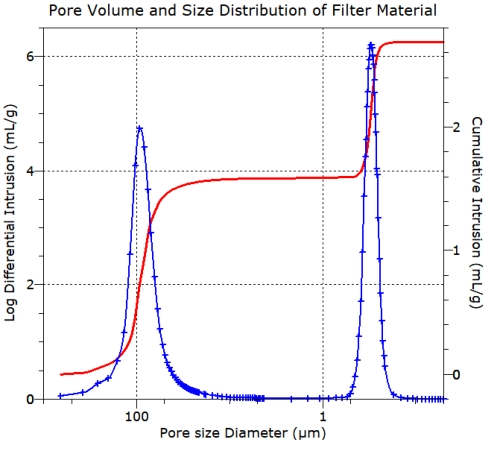
Ceramics
and
filter
media
are
applied
to
a
very
broad
range
of
applications
and
are
intended
for
exposure
to
a
diverse
range
of
operating
conditions
and
interacting
species,
from
gaseous
molecules
to
fluid
and
water
contaminants.
Requirements
of
pore
size,
pore
volume
and
specific
surface
area
therefore
cover
a
wide
range
are
usually
very
demanding
with
respect
to
the
absolute
values.
At
MCA
Services
we
offer
a
complete
suite
of
analytical
techniques
which
allows
for
the
complete
characterisation
of
porosity
throughout
the
ranges
of
ultra-micropores
(<
1nm
diameter)
through
to
macro-pores
(up
to
650
µm).
When
the
ceramic
or
filter
media
is
doped
with
a
chemically
active
metallic
component,
chemisorption
options
become
particularly
useful.
Chemisorption
provides
the
means
of
analysing
the
active
component
alone
for
its
surface
area,
crystallite size and, importantly, availability via its dispersion.
Key Applications
Gas Adsorption
Ultra-micropore analysis (< 1.0 nm)
Micropore analysis (< 2.0 nm)
Mesopore analysis (2 – 50 nm)
Pore volume measurement
Pore size distribution measurement
Specific surface area (BET) measurement
Specific probe gases available
Mercury Porosimetry
Mercury intrusion and extrusion options
Mesopore & Macropore analysis (3.5 nm – 650 µm)
Pore volume measurement
Pore size distribution measurement
Absolute porosity, bulk density and skeletal density
Permeability and tortuosity measurement
Cavity to throat size measurement
Helium Pycnometry
Absolute density measurement
Chemisorption and Temperature Programmed Analysis
Application to active metal doped media
Active component dispersion and surface area
Reduction, oxidation and desorption temperature profiles
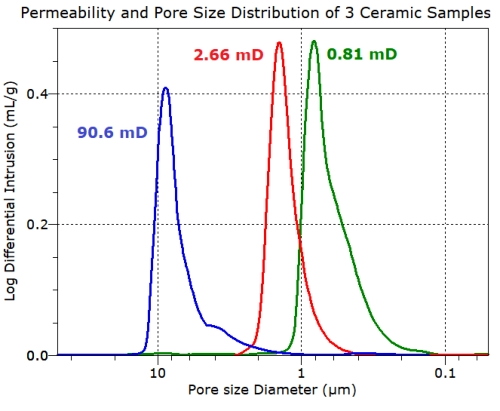
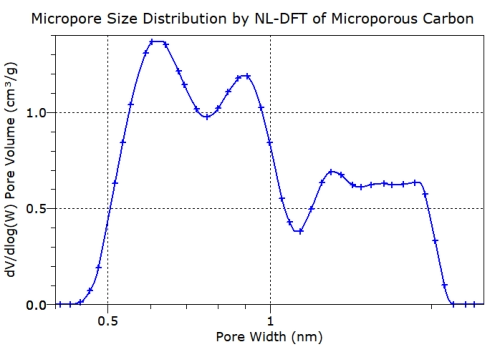
MCA
Services
offers
a
complete
suite
of
techniques
for
the
characterisation
of
material
porosity
throughout
the
range
of
micropores,
through
mesopores
and
macropores.
We
also
have
extensive
experience
and
expertise
to
actively
assist
with
the
interpretation
of
results,
relating
porous
characteristics
to
the
sample
material
and
its
ultimate
application
in
a
battery
system.
Combined
with
state-of-the-art
instrumentation
and
software, offering flexible and extensive reporting options, we help to maximise the amount of high quality data describing sample materials.
Physical Characterisation of Ceramics and Filter Media
The
porosity
of
ceramics
and
filter
media
is
often
inextricably
linked
to
their
performance
in
a
wide
range
of
applications.
When
selecting,
assessing
or
producing
ceramics
and
filter
media
it
is
necessary
to
consider
the
required
porous
characteristics
with
respect
to
the
intended
application.
Changes
in
porosity
also
need
to
be
considered
during
product
use,
especially
with
regard
to
capacity
thresholds,
pore
blocking
or
fouling
and
product
regeneration.
The
porous
nature
of
raw
material
powders,
together
with
manufacturing
conditions,
often
dictate
the
ultimate
pore
size
and
volume
of
a
finished
product,
and
therefore
its
efficacy.
Key Applications
Determination of pore size and volume
Determination of absolute porosity
Selection and control of raw material constituents
Formulation and fabrication process control
Identification of optimum fabrication conditions
Selection of materials for specific applications
Monitoring of products for efficacy during use
Investigation product failure and performance issues
Investigating product regeneration
Application to filtration of gaseous environments
Application to fluid environments and water treatment
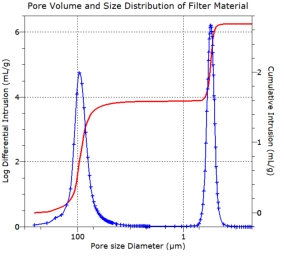
Ceramics and filter media are applied to a very broad range of
applications and are intended for exposure to a diverse range of
operating conditions and interacting species, from gaseous
molecules to fluid and water contaminants. Requirements of pore
size, pore volume and specific surface area therefore cover a wide
range are usually very demanding with respect to the absolute
values. At MCA Services we offer a complete suite of analytical
techniques which allows for the complete characterisation of
porosity throughout the ranges of ultra-micropores (< 1nm
diameter) through to macro-pores (upto 650 µm). When the
ceramic or filter media is doped with a chemically active metallic
component, chemisorption options become particularly useful.
Chemisorption provides the means of analysing the active
component alone for its surface area, crystallite size and,
importantly, availability via its dispersion.
Key Applications
Gas Adsorption
Ultra-micropore analysis (< 1.0 nm)
Micropore analysis (< 2.0 nm)
Mesopore analysis (2 – 50 nm)
Pore volume measurement
Pore size distribution measurement
Specific surface area (BET) measurement
Specific probe gases available
Mercury Porosimetry
Mercury intrusion and extrusion options
Mesopore & Macropore analysis (3.5 nm – 650 µm)
Pore volume measurement
Pore size distribution measurement
Absolute porosity, bulk density and skeletal density
Permeability and tortuosity measurement
Cavity to throat size measurement
Helium Pycnometry
Absolute density measurement
Chemisorption and Temperature Programmed Analysis
Application to active metal doped media
Active component dispersion and surface area
Reduction, oxidation and desorption temperature profiles
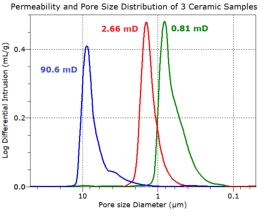
MCA
Services
offers
a
complete
suite
of
techniques
for
the
characterisation
of
material
porosity
throughout
the
range
of
micropores,
through
mesopores
and
macropores.
We
also
have
extensive
experience
and
expertise
to
actively
assist
with
the
interpretation
of
results,
relating
porous
characteristics
to
the
sample
material
and
its
ultimate
application
in
a
battery
system.
Combined
with
state-of-the-art
instrumentation
and
software,
offering
flexible
and
extensive
reporting
options,
we
help
to
maximise
the
amount
of
high
quality
data
describing
sample
materials.
















